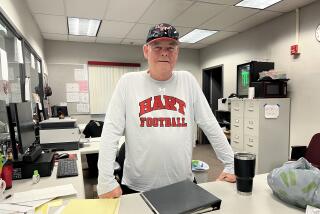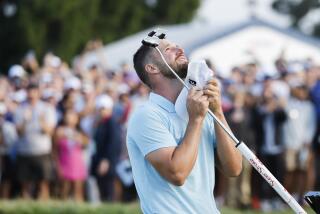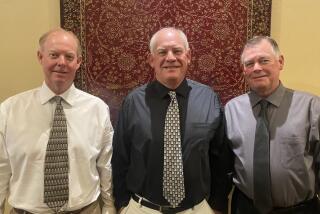Gary Clark Running the Good Race : Heart Transplant Didn’t Keep This Athlete in Low Gear
- Share via
On Nov. 30, 1985, Gary Clark awoke from surgery at the University Medical Center at Tucson, Ariz., and heard a welcome sound: his heart, beating steadily inside his chest.
Clark had received a heart transplant that saved him from a viral infection, viral cardiomyopathy, that had been literally eating his heart--and life--away for nearly three years.
Clark’s heart was functioning at only 2% of its capacity before the surgery, according to his physician, Jack Copeland of the University of Arizona Medical Center in Tucson.
Copeland had told Clark that unless an acceptable donor heart was found, an artificial heart would have to be inserted. Otherwise, Clark would have less than 48 hours to live.
Time was running out, and Clark was prepared for an artificial heart. But moments before surgery, a compatible donor heart, recovered from a victim of a motorcycle accident, was delivered to the hospital from Phoenix.
“Dr. Copeland asked me if I could hang in there till it arrived,” Clark said. “I said, ‘Of course, of course.’ I guess I didn’t know then what really desperate condition it (his heart) was in.”
Today, Clark, 47, not only is alive and well, but is living a life most would consider far from rehabilitative.
Clark competes in mini-triathlons, which consist of a 1.5-kilometer swim, a 40K bike ride and a 10K run. He has been working his way toward what many fitness buffs consider cardiovascular heaven.
On Sunday, Clark will compete in a Bud Light U.S. Triathlon Series event beginning at 7:45 a.m. in Dana Point. It will be Clark’s 10th event since April 1986.
The Dana Point race has been reduced from a triathlon to a biathlon because of community opposition to the bicycle route, which forced cancellation of the cycling phase.
His first competition, the Old Pueblo Triathlon in Tucson, came only four months and 27 days after his surgery. At first, Clark’s participation in a triathlon prompted strong opposition from his doctors. Although he had already completed 5K and 10K fitness walks, triathlons were deemed too dangerous for someone just recovering from heart surgery.
“He (Dr. Copeland) said I was probably crazy, but since the hospital didn’t do brain transplants, I would have to first pass two tests instead,” Clark said. “My heart biopsy had to show zero percent rejection, and I had to pass a treadmill test.”
Clark passed both tests and was allowed to participate in the Old Pueblo event, but only under the watchful eyes of hospital attendants riding bicycles beside him.
Although he finished last, Clark considered himself a winner.
“What can you say?” Clark said. “It’s so overwhelming. Having a second chance to live, being able to see and do the things that before you supposedly never had time for.
“It used to be that all I worried about was material things. Whether I drove the right car, wore the right clothes and had the most impressive title on my business card,” said Clark, a former insurance executive. “I feel I just took from others during the last 15-20 years, but in the last 18 months I’ve been able to give something back.”
Clark has received many letters from other heart transplant patients asking him about his training and race schedule. They ask how hard he works, what kind of pain he endures, and whether he thinks they have a chance of doing comparable feats.
Many times during races, Clark is stopped by well-wishers along the way, to shake hands, offer congratulations and support.
“That might bother others,” Clark said. “But I’m not doing this to win--I can’t. It’s more to realize the quality of life, keeping fit, and keeping your priorities in line. The rewards are insurmountable.”


